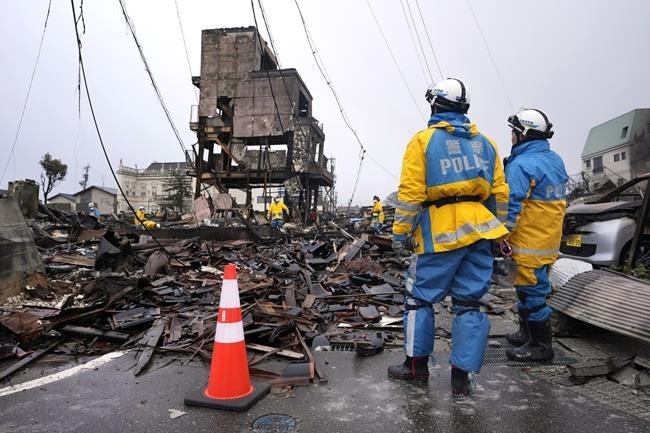TORONTO — It's important to develop a backstop for the insurance industry against major catastrophes like an earthquake, said the head of Canada's financial institutions regulator Tuesday.
A major disaster like an earthquake in Vancouver could cause between $35 billion and $40 billion in damages and significantly strain the insurance system, said Superintendent of Financial Institutions Peter Routledge at a catastrophe insurance conference in Toronto.
“We could have, and most likely would have, very serious problems, systemic problems, in terms of capital to absorb the aftermath," said Routledge.
“For that reason, sooner is better than later in building some sort of resilience in this system for dealing with that.”
The federal government committed in the 2023 budget to look into solutions to earthquake insurance and other evolving climate-related insurance market challenges.
Major disasters in other countries have led to insurance companies going bankrupt, including two after the 2011 earthquake in Christchurch, New Zealand, and nine after the 1992 Hurricane Andrew in Florida.
Routledge said a system based on similar principles to how the Canada Deposit Insurance Corporation backs up the banking sector would be helpful, where a public-private effort reassures protection against terrible events while also protecting taxpayers.
"That's a real advantage in our system that I want to preserve, and you preserve it by ensuring that risk-based capital gets the upside, and absorbs the downside."
And while the chances of a single large disaster are low, insurers are also facing ever-increasing risks from climate change.
The best way to ensure a proper response to climate change is to get clear pricing and measurement of risks, said Routledge.
“The faster we price in the cost of climate, and the risk, the faster private enterprise will innovate solutions like adaptation," he said.
Getting those empirical measurements will lead boards to adapt and shift away from fossil fuel-based energy as smoothly as possible, while also pricing in the "inevitable increase in catastrophe costs that will come with climate change," he said.
OSFI has already mandated some climate disclosures that start coming due later this year, but Routledge admitted that Canada is not as far along as jurisdictions like Europe.
He said he was OK with not being a leader internationally on climate issues if it helps to avoid distractions from core common sense regulatory measures.
"As long as we keep making progress, I don't mind being in the middle."
This report by The Canadian Press was first published Feb. 6, 2024.
Ian Bickis, The Canadian Press




